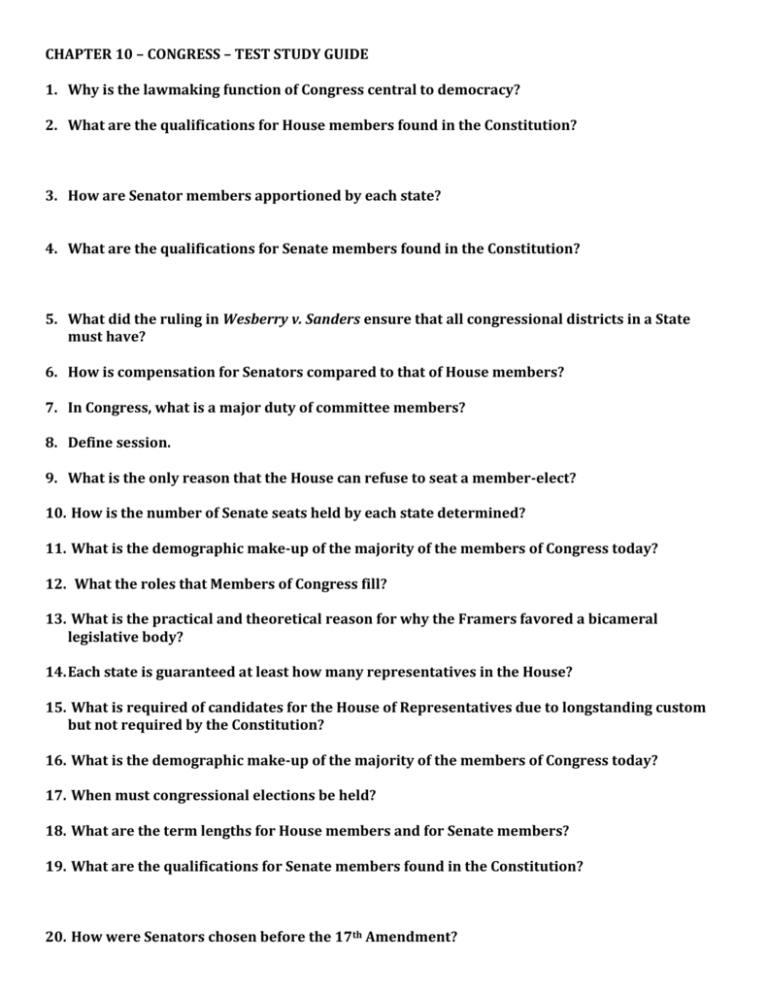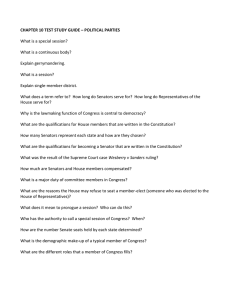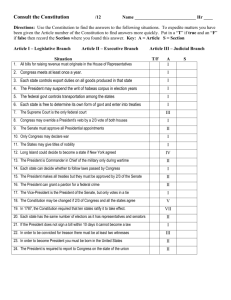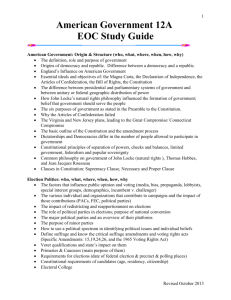Congress Study Guide: US Government & Lawmaking
advertisement

CHAPTER 10 – CONGRESS – TEST STUDY GUIDE 1. Why is the lawmaking function of Congress central to democracy? 2. What are the qualifications for House members found in the Constitution? 3. How are Senator members apportioned by each state? 4. What are the qualifications for Senate members found in the Constitution? 5. What did the ruling in Wesberry v. Sanders ensure that all congressional districts in a State must have? 6. How is compensation for Senators compared to that of House members? 7. In Congress, what is a major duty of committee members? 8. Define session. 9. What is the only reason that the House can refuse to seat a member-elect? 10. How is the number of Senate seats held by each state determined? 11. What is the demographic make-up of the majority of the members of Congress today? 12. What the roles that Members of Congress fill? 13. What is the practical and theoretical reason for why the Framers favored a bicameral legislative body? 14. Each state is guaranteed at least how many representatives in the House? 15. What is required of candidates for the House of Representatives due to longstanding custom but not required by the Constitution? 16. What is the demographic make-up of the majority of the members of Congress today? 17. When must congressional elections be held? 18. What are the term lengths for House members and for Senate members? 19. What are the qualifications for Senate members found in the Constitution? 20. How were Senators chosen before the 17th Amendment? 21. Why does the Constitution guarantee that the courts may not prosecute members of Congress for what they say in the House or Senate in relation to congressional business? 22. Explain the differences between the House of Representatives and the Senate. 23. Why does the party in power tend to lose seats in off-year elections?











